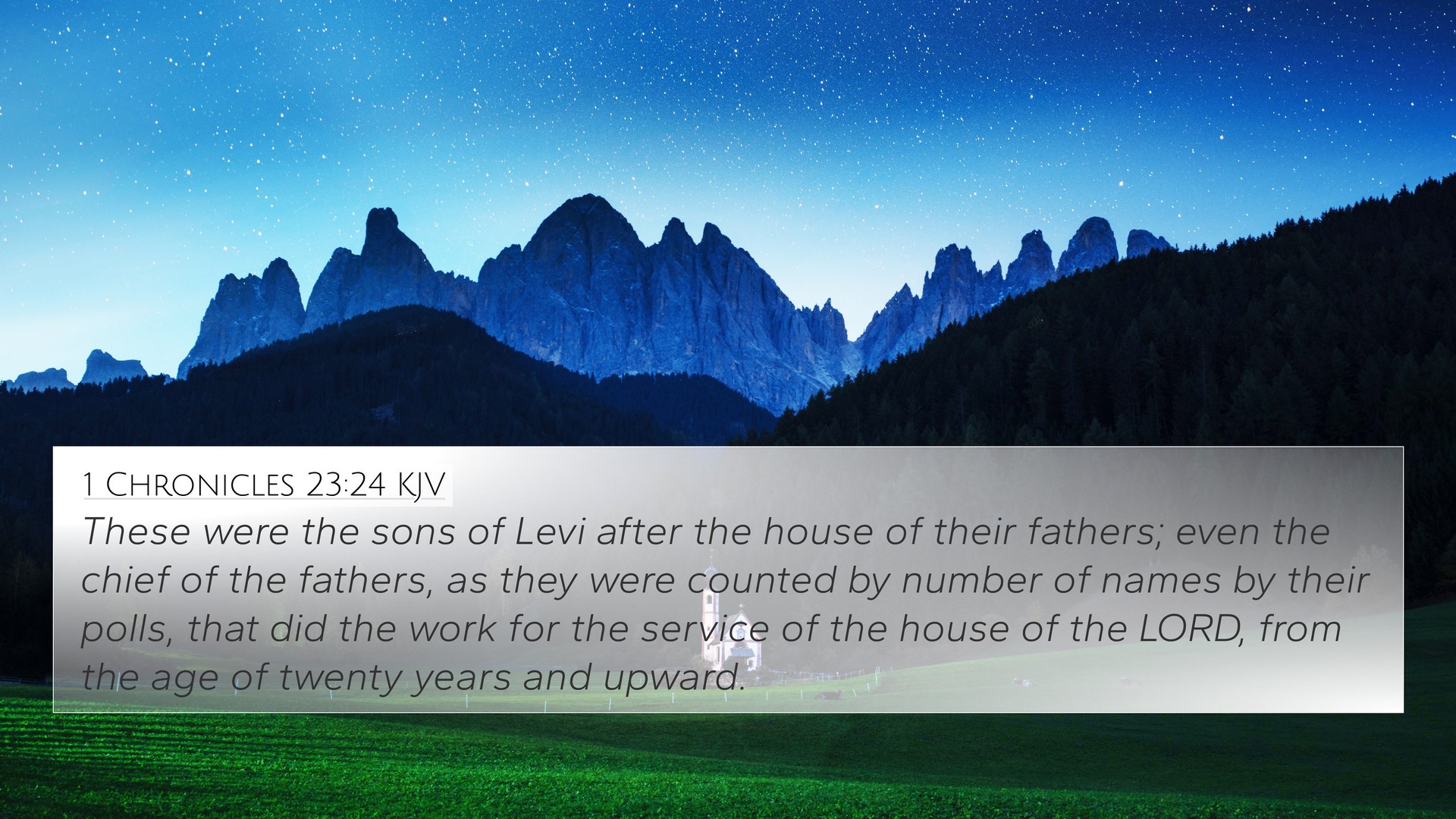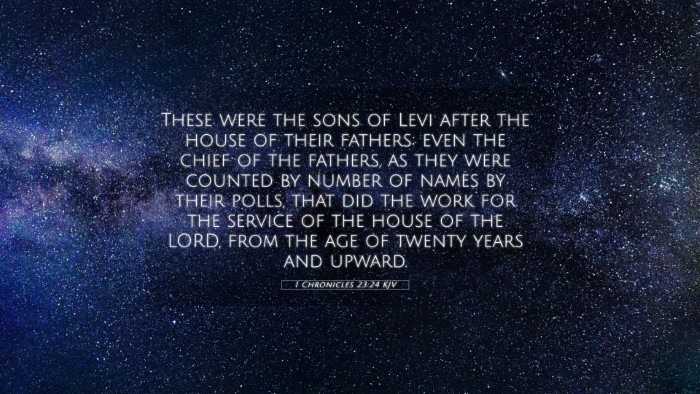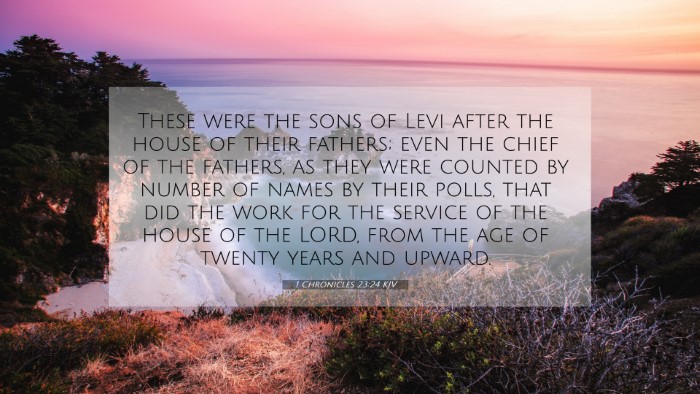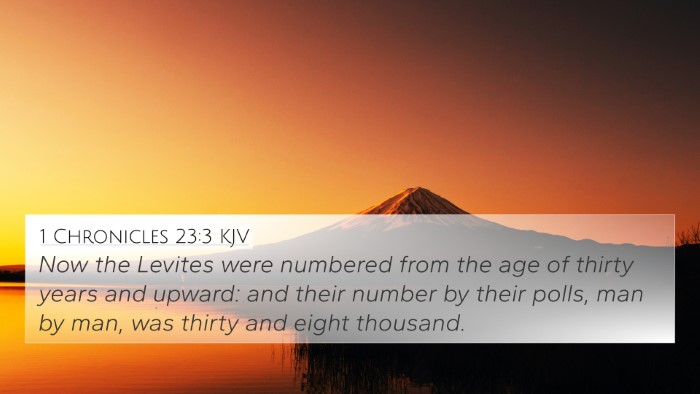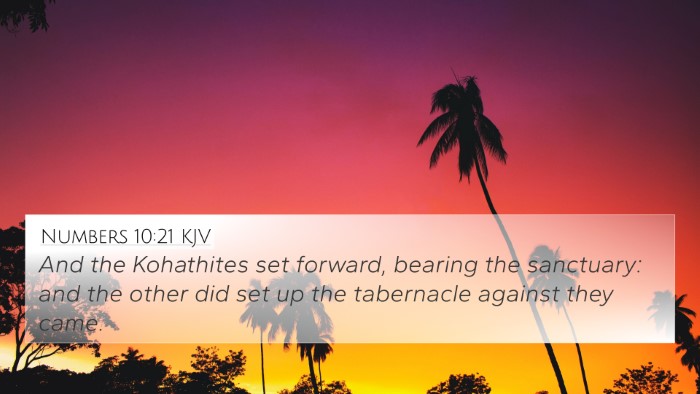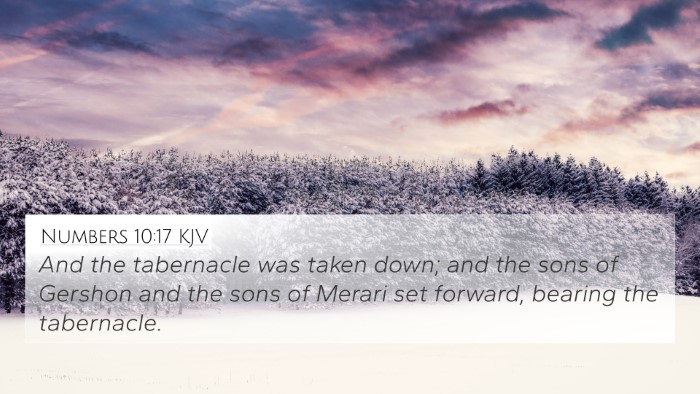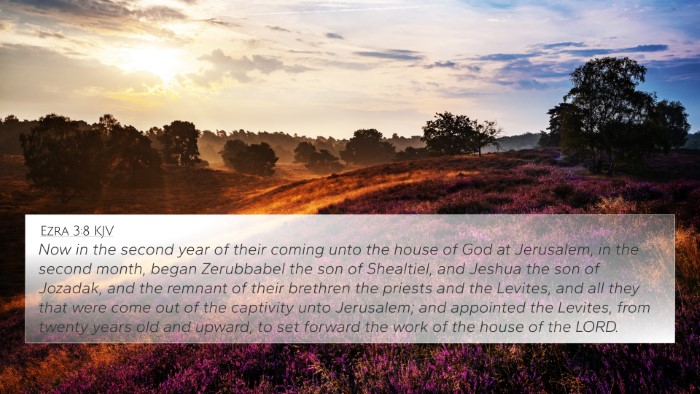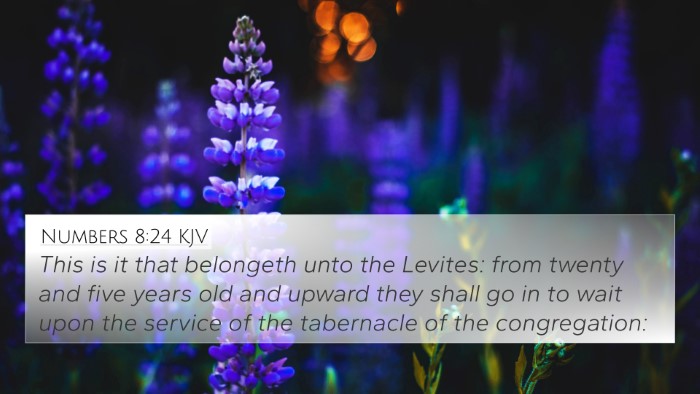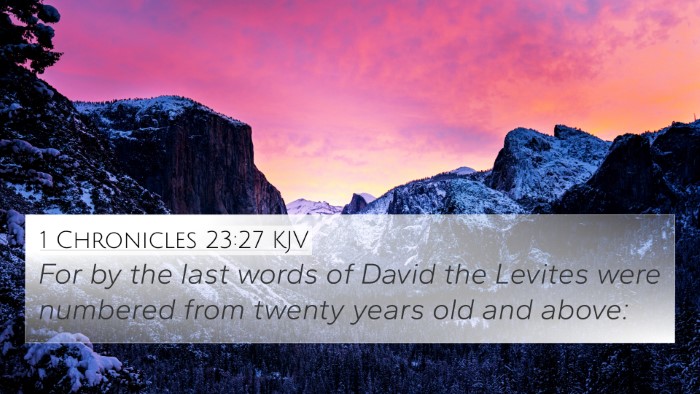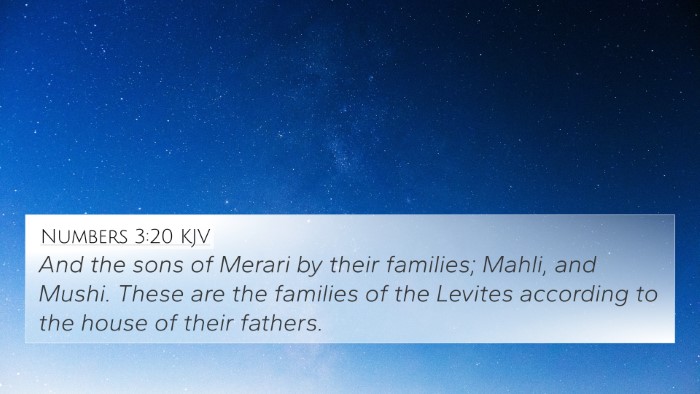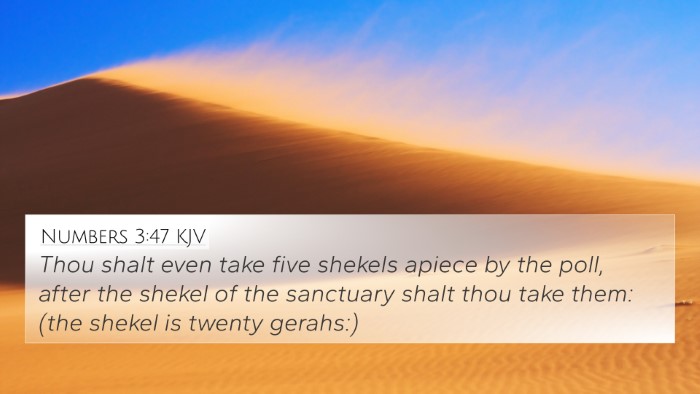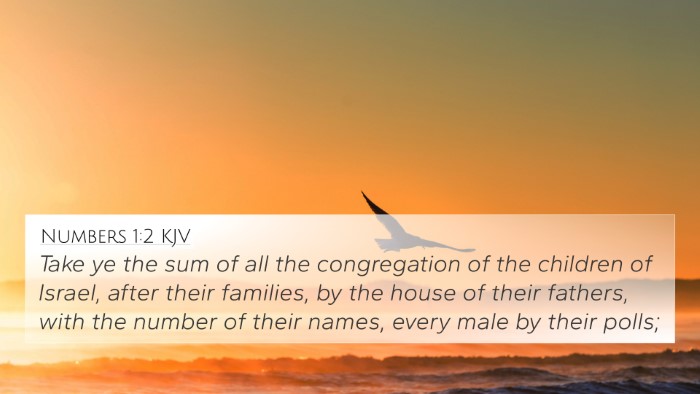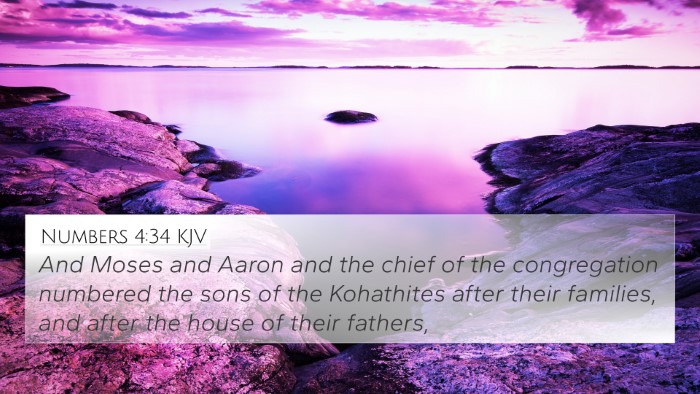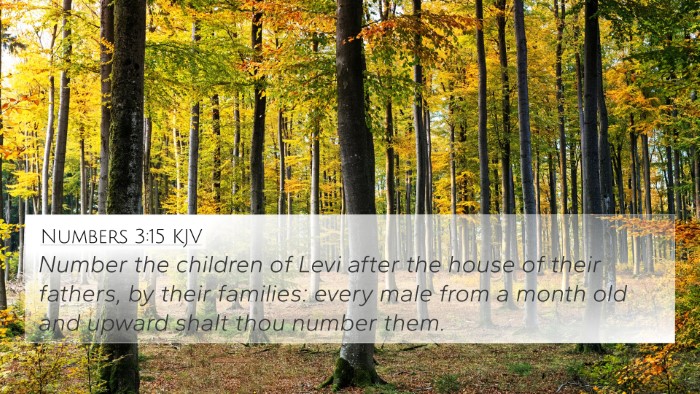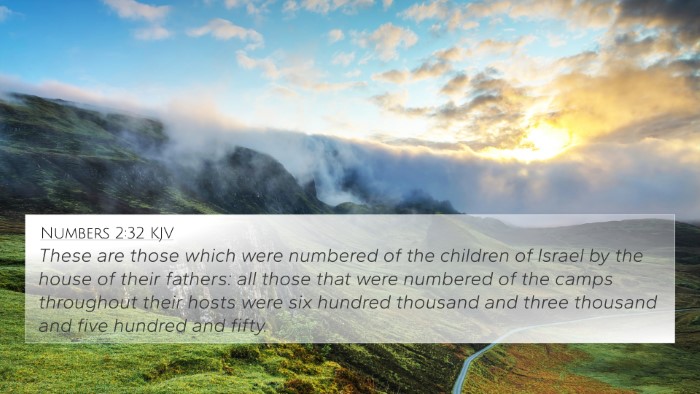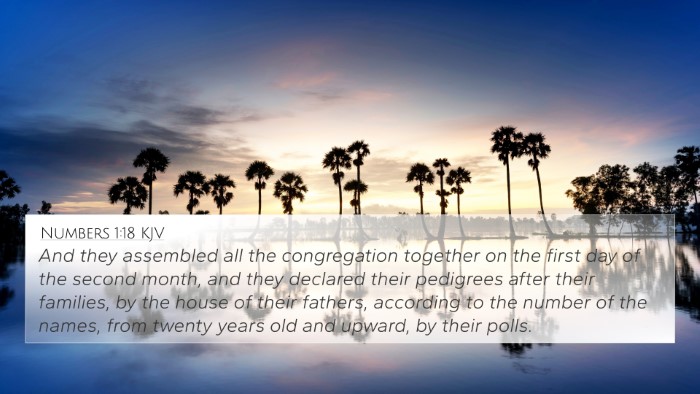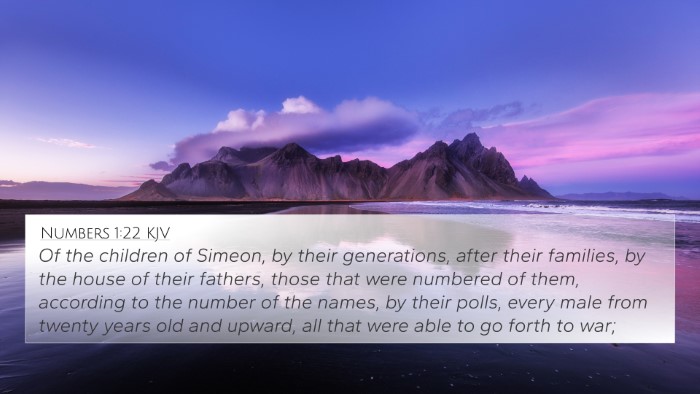Understanding 1 Chronicles 23:24
1 Chronicles 23:24 states: "These were the sons of Levi after the house of their fathers; even the chief of the fathers, as they were counted by number of names by their polls, that did the work for the service of the house of the Lord, from the age of twenty years and upward."
Verse Meaning and Interpretation
This verse captures a significant moment in Israel’s religious history, particularly focusing on the role of the Levites in the service of the Temple. The Levites are designated as the appointed servants of God, highlighting their importance within the community. Below are combined insights from notable public domain commentaries:
- Matthew Henry: Henry emphasizes the Levites' critical role within the temple service, symbolizing spiritual leadership. The meticulous counting of names reflects the serious nature of their responsibilities, and their designation from the age of twenty signifies maturity and readiness for service.
- Albert Barnes: Barnes elaborates on the significance of the age mentioned — twenty years — as indicating a threshold of accountability and capability. The verse not only establishes the Levites as a separate tribe but reinforces their specific function in maintaining the worship rituals crucial to the Israelite community.
- Adam Clarke: Clarke provides additional context by noting the Levites were not merely assistants to the priests but had a distinct set of duties, which included music, guarding the temple, and performing various ceremonial tasks critical to worship practices.
Bible Verse Cross-References
To better understand 1 Chronicles 23:24, we can draw connections to several other scriptures that share thematic elements or provide further insight into the responsibilities of the Levites. Here are some relevant Bible cross-references:
- Numbers 1:49-51: This passage speaks of the Levites’ dedicated service to the tabernacle, establishing their unique positioning among the tribes of Israel.
- Exodus 28:1: God commands Aaron and his sons, underscoring the importance of leadership within the priestly class and complementing the duties of the Levites.
- Deuteronomy 10:8-9: This scripture delineates the Levites' assigned role in carrying the Ark of the Covenant and acting as the mediator between God and the people.
- 2 Chronicles 35:3: The passage encourages the Levites to serve in the ceremonies, reinforcing their designated worship responsibilities.
- 1 Peter 2:9: This New Testament verse parallels the Levitical calling as it refers to all believers as a “royal priesthood,” indicating their function in worship and service to God.
- Hebrews 7:14: This passage discusses Jesus and His priesthood from the tribe of Judah, contrasting with the Levitical priesthood and highlighting the evolving nature of service to God.
- Malachi 2:4-7: The role of the priesthood is reiterated, which can be correlated back to the Levites’ foundational responsibilities in both worship and teaching.
Connections and Themes
The connections between these verses and 1 Chronicles 23:24 create a rich fabric of understanding regarding the spiritual and practical functions of the Levites throughout biblical history:
- The concept of service to God as a communal responsibility.
- The transition of priestly roles from Levites to the New Covenant established through Christ.
- The enduring principle of accountability from the age of maturity in spiritual matters.
Using Bible Cross-Reference Tools
Understanding how to find cross-references in the Bible can enhance one’s study and comprehension of scripture:
- Bible Concordance: A valuable resource for locating words and their occurrences across different verses.
- Bible Cross-Reference Guide: Helps find related scriptures and thematic connections.
- Cross-Reference Bible Study: A method for engaging deeply with the text through thematic and contextual analysis.
Conclusion: Inter-Biblical Dialogue
The analysis of 1 Chronicles 23:24 encourages a broader understanding of not only the Levites' role but also the overall structure of worship and service in ancient Israel. As we dive into inter-Biblical dialogue, recognizing how various scriptures connect ensures a holistic grasp of biblical themes. Engaging with these cross-references promotes theological understanding and spiritual growth.
